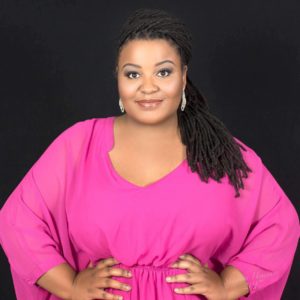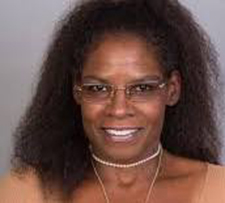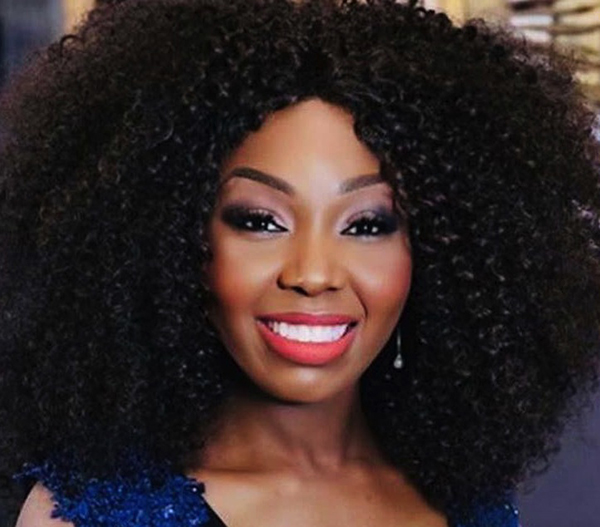MAKING A DIFFERENCE
By Darlene Donloe
Contributing Writer
René Brooks has been living with attention deficit hyperactivity disorder (ADHD) ever since she was diagnosed with the condition at the age of 7. She was diagnosed again at age 11 and again at age 25.
Now she is 36 and admits that trying to live a normal life continues to be a daily struggle.
She writes about and talks about her life with ADHD in Black Girl, Lost Keys, a blog and creative space she started in 2014, that seeks to provide women of color with visibility in the mental health community, and a safe place to learn about and manage their condition.
Brooks calls her brand Black Girl, Lost Keys because “Losing and misplacing items is a hallmark symptom of ADHD.” It is also a play on words from the Donald Goines book, “Black Girl Lost.”
“I create spaces,” said Brooks originally from Carlisle, Pennsylvania. “I create a place to write and talk and share. I want to show Black women how to live well with the disorder. I want to give them a space to be free.
“I provide coaching services that give those dealing with ADHD, a chance to be seen. I run a support group every Monday night on Facebook. I work in the community and with different organizations on diverse programs for children and adults with ADHD.”
ADHD is a mental health condition exhibited by difficulty maintaining attention and can severely impact and impair the use of executive functions and hinder task completion.
Executive functions are cognitive processes.
“They are functioning skills that can help you plan and achieve goals,” Brooks said. “Self-monitoring, self-control. When you think you need to go downstairs and grab a notebook, that’s working memory. Time management is an executive function. ADHD is a disorder that can cause issues with executive functioning.”
Brooks said living with the disorder can be “isolating.”
“When you have ADHD, you’re always busy,” she said. “We’re always coming up with something. You become an endless fountain of ideas. It’s a condition that is hard for most people to understand.”
Over the years Brooks has found that ADHD has become “stigmatized in the Black community.”
“It affects the family,” she said. “You need support. Sometimes it’s difficult to get support. Sometimes you aren’t heard. There are other people who are allowed to be quirky and free-spirited — but not us. Not Black women. We aren’t allowed.”
Research shows that women with ADHD are the fastest-growing population of those newly diagnosed with ADHD.
“It’s stereotyping and racism,” Brooks said. “We have to demand to be accepted as we are. We are stressed out. ADHD adds a whole other level.”
The symptoms of ADHD are so disruptive, that Brooks said it’s difficult for someone to keep their life flowing smoothly.
“Timeliness is an issue,” said Brooks, who lost several jobs because of her inability to be on time and to focus on the task at hand. “It really affects your job performance. It’s also hard to keep a household going. It’s hard to maintain relationships.
“For people with ADHD, it’s difficult. It becomes even more difficult because people don’t understand it. They think you’re making excuses so that you don’t have to do some things.”
For someone with ADHD, paying attention is a real issue.
“It’s tied into the way your brain works,” she said. “Your brain works and struggles. Emotional regulations are tied into it. You’re in a constant state of dysregulation.
“My finances were a mess. I was disorganized. I couldn’t get anywhere on time. You get time blindness. You won’t feel time. One minute and 30 minutes feel about the same. You often think to yourself, will I survive. You can. You just have to find a new way.”
For Brooks, stimulant medication was the answer to her living a normal life.
“No, it’s not the only thing you can do,” Brooks said. “But it’s great for me. There is no prize at the end for not taking your medication. People are moralizing, especially within the Black community. They are on the side of not taking medicine. I have found that natural cures are wonderful, but sometimes not medically appropriate.”
When Brooks was first diagnosed, the prevailing attitude at the time was that “People are trying to medicate away childhood. They don’t want to deal with children’s energy in the classroom. They are shoving drugs down their throat. There is a lack of desire to discipline on the part of parents and teachers. That was the thinking of the time.”
Brooks said when she was a child, a doctor told her mother that she didn’t have ADHD.
“He told her to just give me more responsibility,” she said. “Doing that was not the solution. It’s not unusual to run into a doctor who doesn’t believe in ADHD. The notion was that Black men were being overdiagnosed with it and Black women are just disregarded in the conversations, which is why we need Black Girl, Lost Keys.”
Throughout her life, Brooks has run up against opposition within the Black community because, she says, Blacks don’t readily acknowledge ADHD as a real concern.
“When you go up against a family member or a Black person who says,‘That’s for white people. Why are you letting them get in your head? You don’t have ADHD. You need to go chill, exercise, or eat better.’ They want to put your condition on anything but ADHD,” she said.
“In the Black community, no one wants to hear about it. It’s white people’s stuff. It’s like you’re betraying the whole community. They say, ‘You’re supposed to be stronger than this. Shut up.’”
Brooks said that attitude can often leave people feeling like they don’t fit in anywhere.
“You are all by yourself,” she said. “That’s a hard place to be. We simply can’t accept that we may have mental issues.
“Why does that apply to medical conditions of the mind? Some wear it as a point of pride that we’ve survived 500 years of abuse. When you think about it, why wouldn’t we have a mental health problem after all that?
“It’s not a point of pride,” she added. “When we do that, we become willing participants in our dehumanization.”
What worked for Brooks, she said, was a lot of honesty, a lot of therapy and medication.
“I was so tired and miserable,” said Brooks, a mental health advocate. “Desperation can have you do some stuff. It’s isolating. The neurodivergent community is largely white. I wanted to connect with other Black people who had ADHD. I knew I couldn’t be the only Black person in America with ADHD.”
It was 2014 when Brooks began receiving ADHD coaching services and wanted to share what she learned.
“I’ve wanted to help people ever since I was diagnosed in 2009,” she said. “I wanted to know about the disorder inside and out. I had to know myself before I could share with others. I wanted to master it so I could teach someone something. That’s what the creative space is for – to teach and to help.”
There is no cure for ADHD. It’s a lifelong condition. It’s also hereditary. Brooks suspects she may have gotten it from her mother, who was also diagnosed with ADHD.
“You learn how to live with it and manage it,” Brooks said. “I’m not ashamed or afraid anymore. It’s not easy. Everyone is different. This takes a lot of work.”
Brooks, who studied English at Penn State, recently signed a book deal about managing ADHD as a Black woman. The book, titled “Black Girl, Lost Keys: Living A Joyous Life As A Black Woman With ADHD,” is set to come out in 2022.
“Making a Difference” is a weekly feature profiling organizations that are serving their communities. To propose a “Making a Difference” profile, send an email to newsroom@wavepublication.com.
Darlene Donloe is a freelance reporter for Wave Newspapers who covers South Los Angeles. She can be reached at ddonloe@gmail.com.












